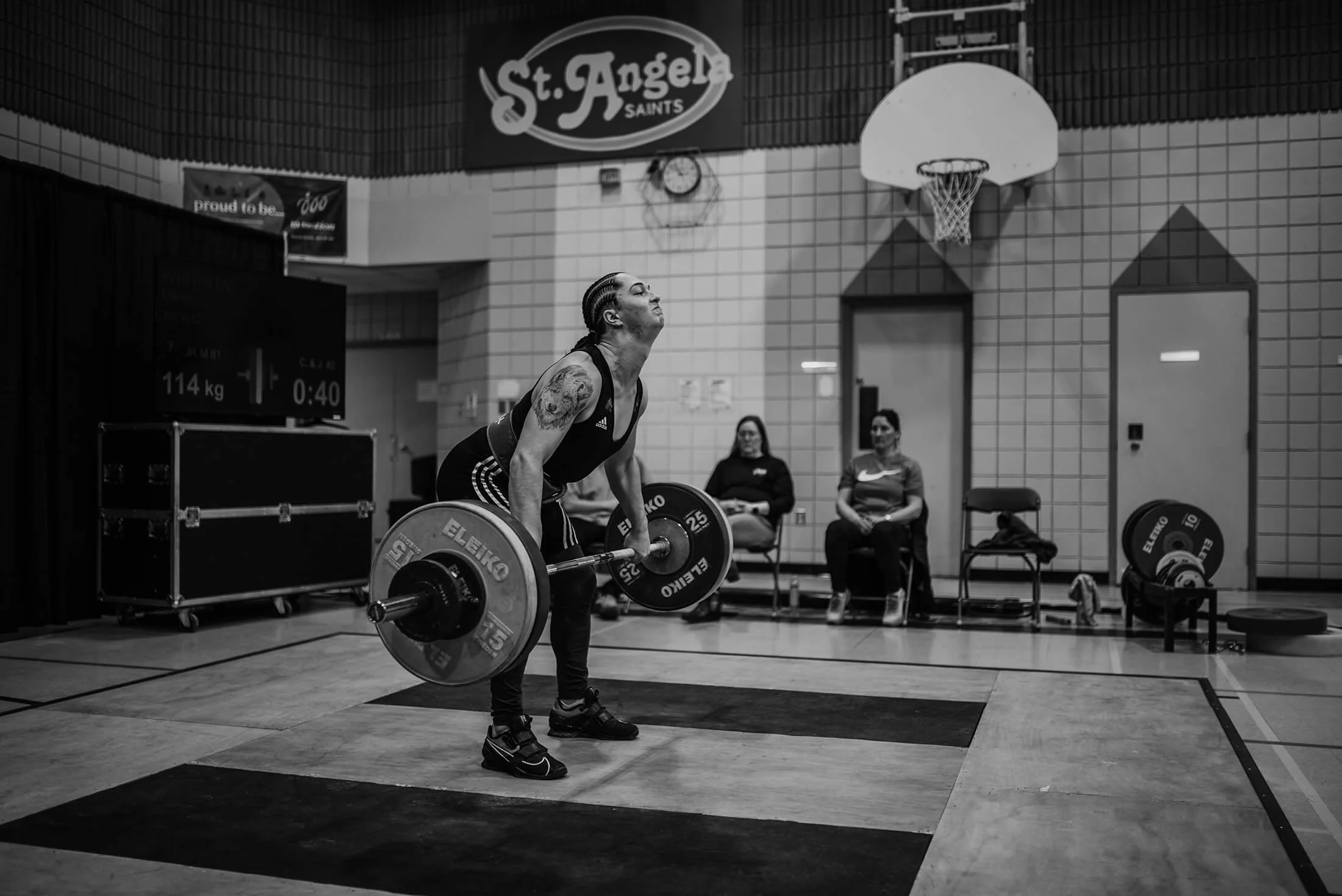
ATHLETE RESOURCES
In order to be eligible to compete at any competition sanctioned by the Saskatchewan Weightlifting, you must be a member in good standing. Your membership must be renewed annually at the start of the season (October 1st).
The sport of weightlifting is for all ages and officially has four age categories to compete in! Training the sport of weightlifting provides individuals with a solid foundation of incredible benefits that transfer to other sports and activities in their lives.
ATHLETE RESOURCE DATABASE:
Youth Information
Internationally in our sport, the Youth category is officially for children between the ages of 13 years old and 17 years old. Children under 13 years old can also compete in the sport of weightlifting at Saskatchewan Weightlifting sanctioned events.
Masters Information
Internationally in our sport, the Masters category is recognized officially for individuals over the age of 35 years old. Nationally in Canada, Canadian Masters Weightlifting recognizes individuals over the age of 30 years old. Saskatchewan Weightlifting includes lifters over the age of 30 in its Masters competitions, but only recognizes those lifters over 35 for Masters rankings and records. Individuals become eligible on January 1 of the year that they will turn 30 or 35. Saskatchewan Weightlifting offers various sanctioned open meets, provincial level meets, and national level competitions that Masters athletes can compete in and qualify for higher level events throughout the calendar year.
Junior Information
Internationally in our sport, the Junior category is officially for individuals between the ages of 15 years old and 20 years old. Individuals in this age category who want to get into the sport can easily find a Saskatchewan Weightlifting registered Training Centre with experienced and certified weightlifting coaches to teach them how to train the correct way from the beginning. Saskatchewan Weightlifting offer various sanctioned open meets, provincial level meets, and national level competitions that Junior athletes can compete in and qualify for throughout the calendar year
Senior Information
Internationally in our sport, the Senior category is officially for individuals over the age of 15 years old. Individuals in this age category who want to get into the sport can easily find a Saskatchewan Weightlifting registered Training Centre with experienced and certified weightlifting coaches to teach them how to train the correct way from the beginning. Saskatchewan Weightlifting offers various, sanctioned open meets, provincial level meets, and national level competitions that Senior athletes can compete in and qualify for throughout the calendar year.
Adapted Sport
While SWA currently does not have a formal para weightlifting program, we are committed to fostering an inclusive environment and exploring opportunities for adaptive athletes within our weightlifting community.
This page provides an overview of para weightlifting and available information and resources for adaptive weightlifters. Adaptive athletes are individuals with physical, sensory, or neurological impairments who participate in competitive sports through modified techniques or equipment.
Para weightlifting is an evolving landscaping in Canada and currently, there is no official para weightlifting organization in Canada. However, Weightlifting Canada Haltérophilie Masters (WCHM) has launched a para weightlifting program with their Canadian Masters National Championship and actively engages with PSOs across Canada to coordinate with each other to enhance support and opportunities for adaptive athletes as the sport continues to grow.
Key Features of Para Weightlifting:
Athletes compete in weight categories similar to traditional Olympic weightlifting.
The sport is open to athletes with various physical impairments affecting their ability to perform standard weightlifting movements.
Para weightlifting has been part of the Paralympic Games since 2000.
At this time, Saskatchewan athletes interested in para weightlifting are encouraged to take the following steps:
Consult with a medical professional regarding your ability to participate.
Thoroughly review the information available on WCHM’s Para Weightlifting webpage. Please note that WCHM has developed an enrollment process for their Canadian Masters National Championship that includes:
Gather relevant medical documentation
Contact WCHM’s Para Weightlifting coordinator
Schedule a classification assessment
Discuss your competition preferences and goals
Contact SWA and WHMC to express your interest in para weightlifting or if you have questions as this helps us continue learning about the needs of our community. At the local and provincial level, SWA recognizes that some athletes may require accommodations or modifications to compete safely and effectively.
The SWA calendar is updated as soon as information and dates about events are known.
Anti-Doping Reminder:
Your Sport, Your Reputation, Your Responsibility
Saskatchewan Weightlifting believes that fair play and the ethical pursuit of sport are addressed through:
A) a focus on the majority of clean Participants,
B) awareness, education, and adoption of the Canadian Anti-Doping Program,
C) accepting ethical responsibility, and
D) meaningful deterrents to cheating.








